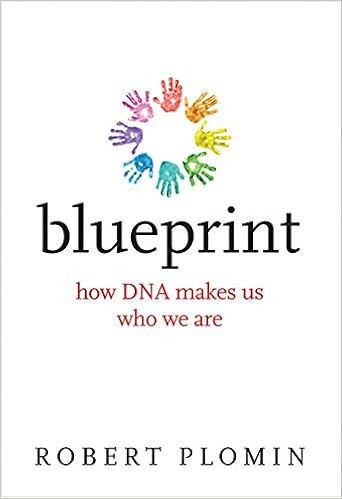 Reviewing behavioral geneticist Robert Plomin’s Blueprint: How DNA Makes Us Who We Are, a history of medicine prof writes,
Reviewing behavioral geneticist Robert Plomin’s Blueprint: How DNA Makes Us Who We Are, a history of medicine prof writes,
Crude hereditarianism often re-emerges after major advances in biological knowledge: Darwinism begat eugenics; Mendelism begat worse eugenics. The flowering of medical genetics in the 1950s led to the notorious, now-debunked idea that men with an extra Y chromosome (XYY genotype) were prone to violence. Hereditarian books such as Charles Murray and Richard Herrnstein’s The Bell Curve (1994) and Nicholas Wade’s 2014 A Troublesome Inheritance (see N. Comfort Nature 513, 306–307; 2014) exploited their respective scientific and cultural moments, leveraging the cultural authority of science to advance a discredited, undemocratic agenda. Although Blueprint is cut from different ideological cloth, the consequences could be just as grave.
…
Ultimately, if unintentionally, Blueprint is a road map for regressive social policy. Nothing here seems overtly hostile, to schoolchildren or anyone else. But Plomin’s argument provides live ammunition for those who would abandon proven methods of improving academic achievement among socio-economically deprived children. His utopia is a forensic world, dictated by polygenic algorithms and the whims of those who know how to use them. People would be defined at birth by their DNA. Expectations would be set, and opportunities, resources and experiences would be doled out — and withheld — a priori, before anyone has had a chance to show their mettle. Nathaniel Comfort, “Genetic determinism rides again” at Nature
Although Comfort doesn’t quite say it, genetic determinism is not something one can simply disprove. It is a mindset, an attitude to life and to people: In popular culture, the thought is expressed as “It’s not me, it’s my genes.” Among our betters, couched in bureaucratic terms, the thought is “You’re right and we could do with fewer genes like yours.” We can’t stop people from believing that stuff; the best we can do is make sure it doesn’t impact public policy much.
The review offers a number of walks on the wild side of genetics.
See also: There’s a gene for that… or is there?